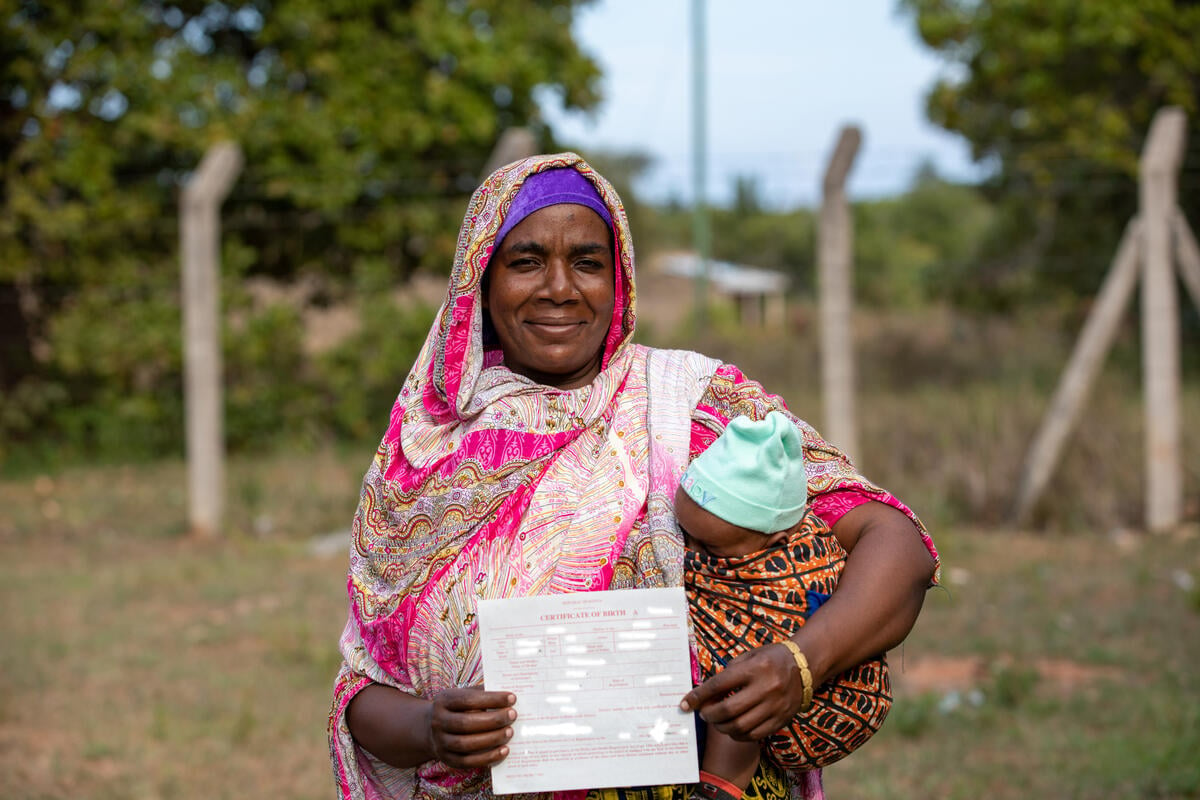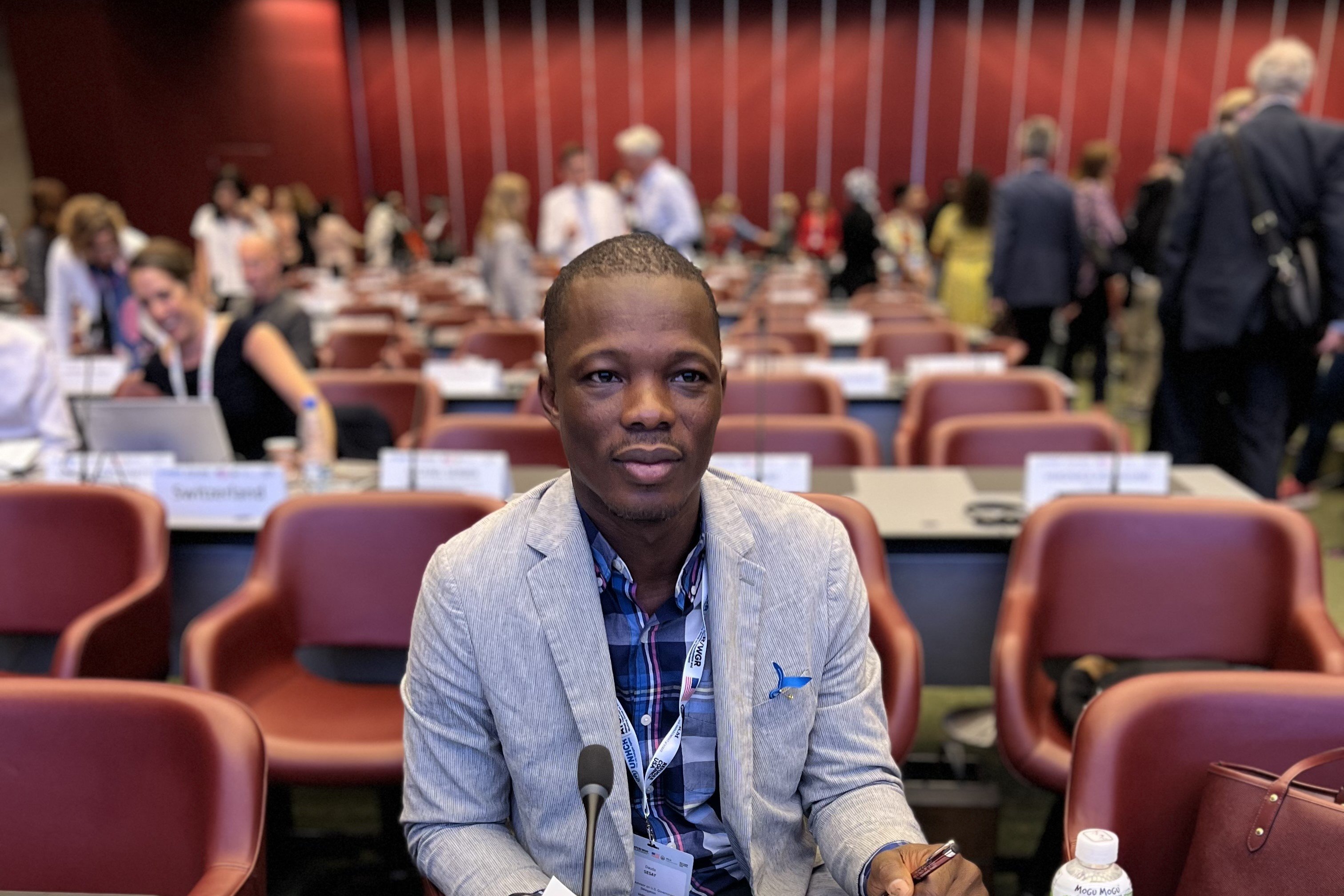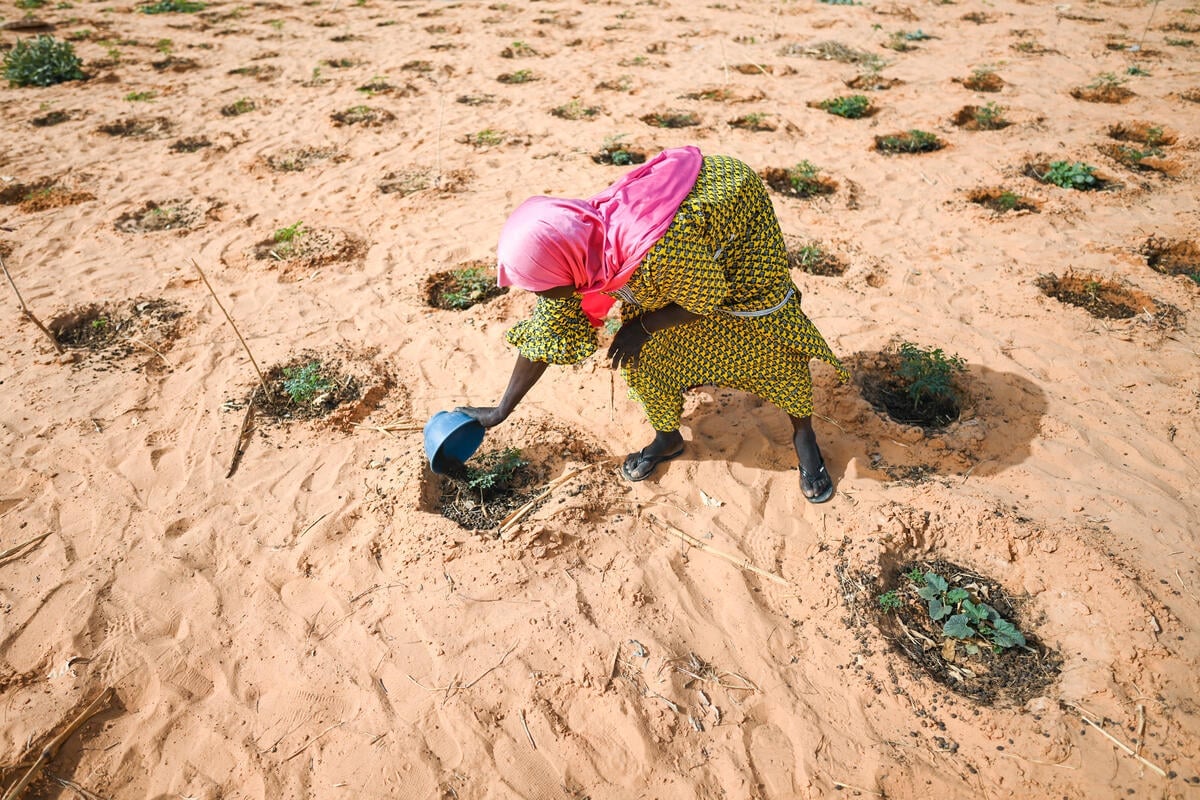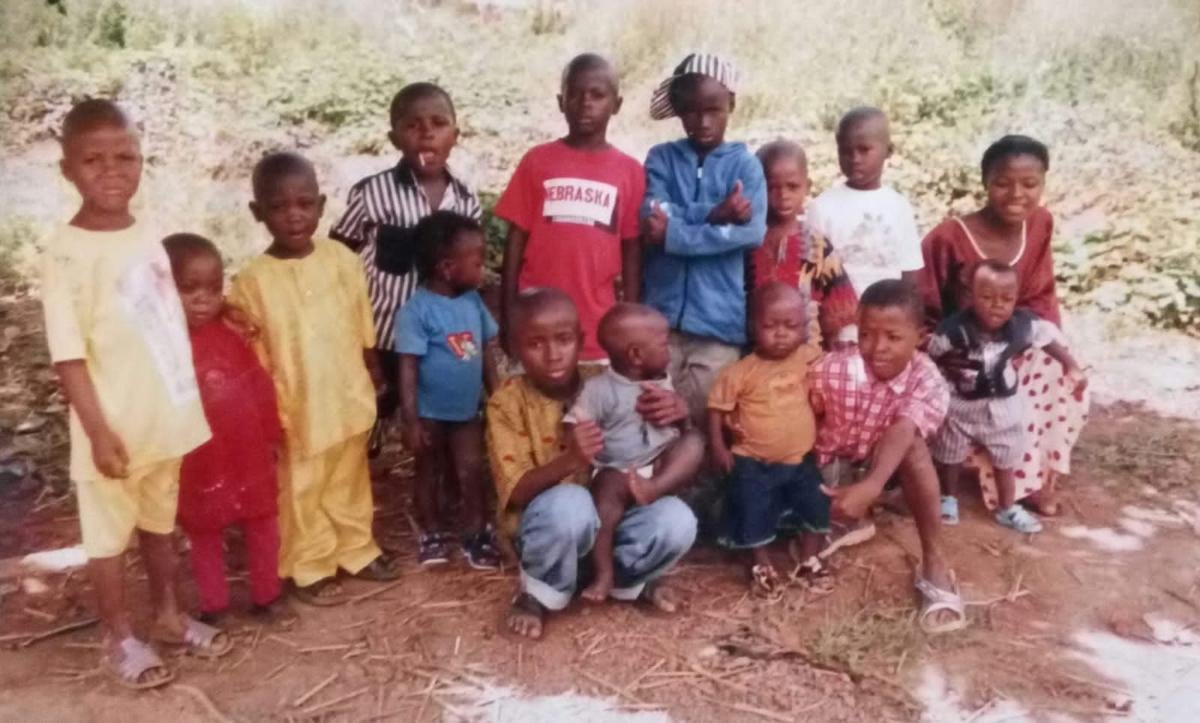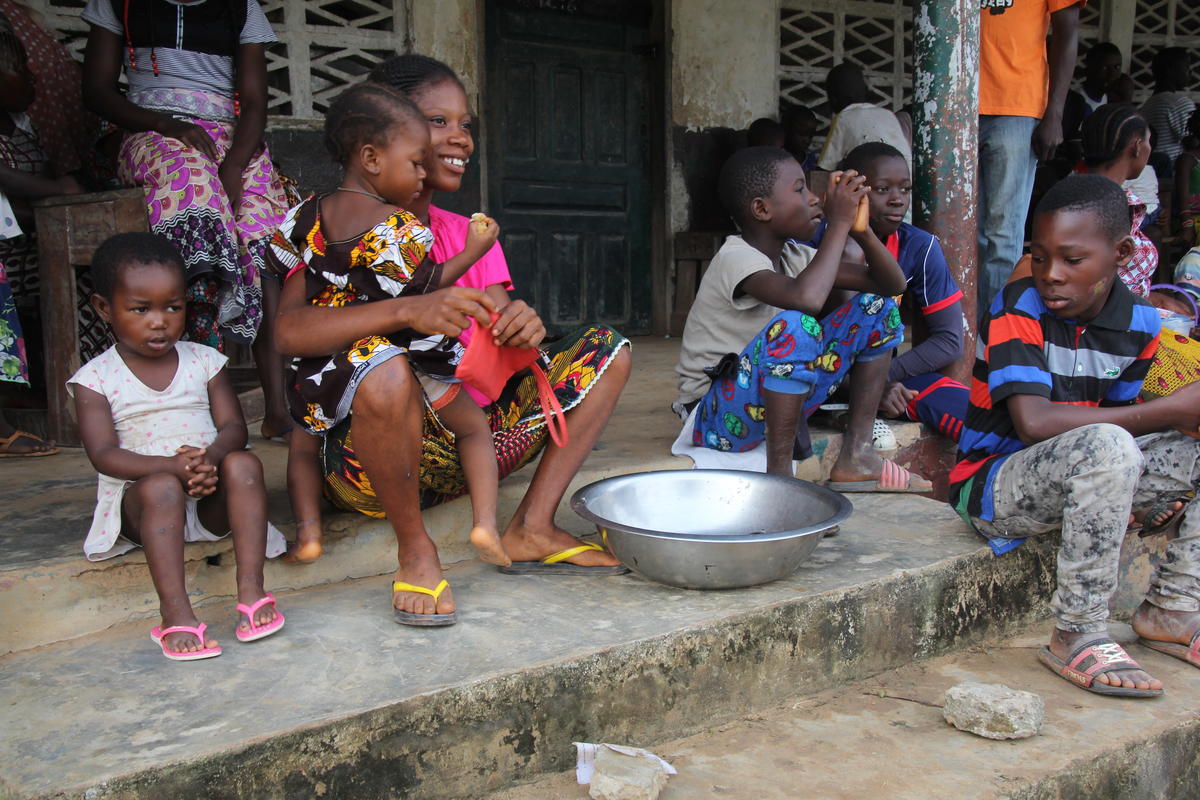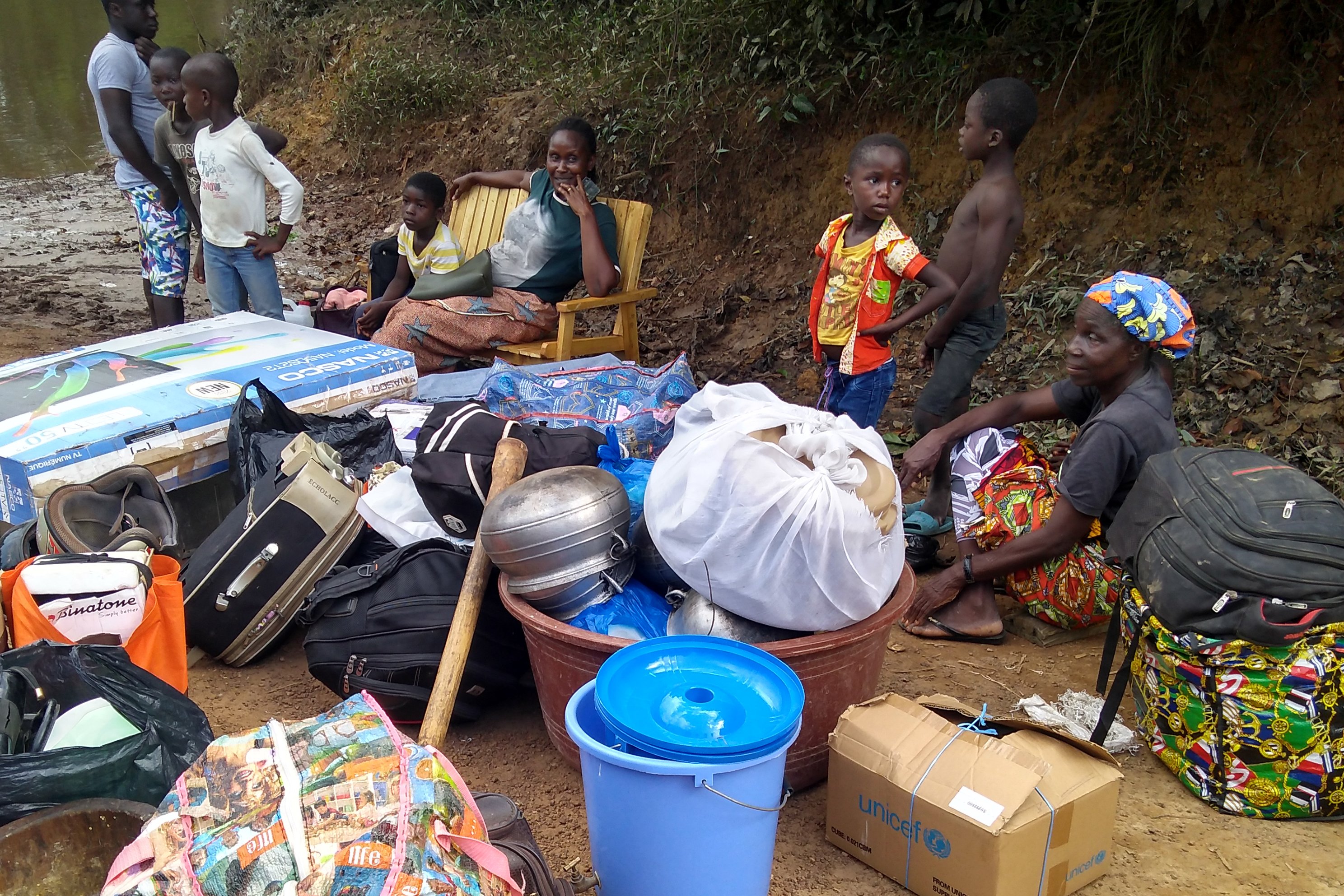Ogata asks for immediate access to 150,000 refugees
Ogata asks for immediate access to 150,000 refugees
High Commissioner for Refugees Sadako Ogata today asked the government of Guinea for immediate access to camps housing more than 150,000 Sierra Leonean refugees, cut off from humanitarian aid for almost three weeks.
In a letter to President Lansana Conté of Guinea, Ogata requested the authorities to re-open roads to refugee sites near the border with Sierra Leone so that UNHCR and other aid agencies can deliver desperately needed food, water and medical care.
"The refugees' situation is all the more preoccupying because they arrived in Guinea in very poor health, and the already-high mortality rates are likely to reach even more alarming levels because of this interruption of our aid operation," Ogata wrote.
The area bordering Sierra Leone, to the south-west of the Guinean town of Guéckédou, has been off-limits for aid deliveries since June 15. Local officials have cited security concerns in denying access.
The High Commissioner appealed for renewed access to the 150,000 people on "strictly humanitarian grounds."
When UNHCR staff were allowed to inspect several sites near the border on June 22, they saw a deserted campsite at Nongoa where over 5,000 newly arrived refugees had been sheltered a few days before. The refugees apparently fled the camp because of nearby fighting between the west African peace-keeping force (ECOMOG) and Sierra Leonean rebels loyal to the former military junta.
UNHCR, the World Food Programme (WFP) and NGOs had been racing to stabilize the health and nutritional situation of the refugees. Malnutrition and mortality, particularly among young children, were already very high before the aid cut-off.
Many of those crossing into Guinea in the last weeks had not received a first food ration when access was blocked. Work on latrines and clean water supply has also stopped, raising the risk of disease in dozens of sites.


